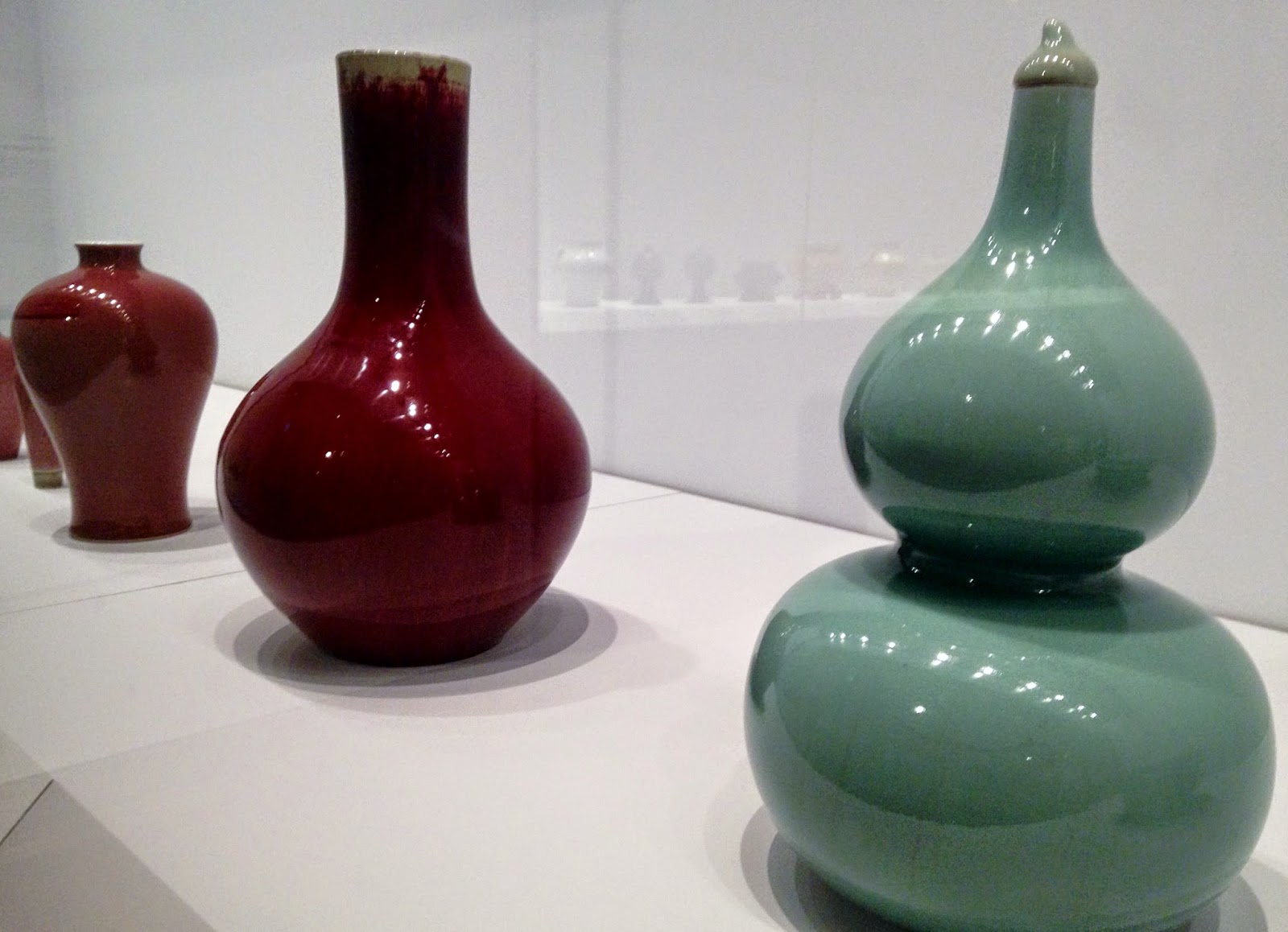I love a visit to the Art Gallery of NSW.
It's a chance to visit old friends and discover new ones.
It's a time to replenish my soul with beauty & creativity.
It's a calm, peaceful world (even mid-week when full of groups of school children!) that smooths away my brittle edges.
On of my favourite pieces this visit was in the Conversations through the Asian galleries.
This exhibit aims to bring together ancient and modern artists, showing us examples of the work that inspired the modern interpretations.
My favourite was 'Container series 2009' by Liu Jianhua.
It consisted of a platform filled with simple, beautiful, green porcelain bowls topped with red glaze.
They were extraordinary, elegant, slightly disturbing, but very powerful.
I was compelled to returned to this space several times to see it from every possible angle.
The 'conversation' was titled serenity and emotion....
Liu
Jianhua is among many ceramic lovers worldwide who view Song Dynasty
ceramics as the
highest artistic achievement of Chinese porcelain production. The bluish-green glaze (gingci)
he uses was very popular during the Song era (960-1279) and conveys a sense of naturalness and serenity.
highest artistic achievement of Chinese porcelain production. The bluish-green glaze (gingci)
he uses was very popular during the Song era (960-1279) and conveys a sense of naturalness and serenity.
In
contrast, the deep red within each of Liu Jianhua's vessels brings to
mind bodily and even violent associations. "Many viewers have asked me,"
Liu Jianhua remarks: "Does the container hold blood? Whose blood?
I have not found the answer yet. What they contain seems to be blodd, but it is rather a history,
from ancient to present."
I have not found the answer yet. What they contain seems to be blodd, but it is rather a history,
from ancient to present."
Historically,
red was one of the supreme colours, used only by nobles and Buddhist
leaders.
During the 1400's Jingdezhen's potters perfected the technology
of producing red glaze wares by
mixing copper directly into the glaze
and firing at high temperatures.
This technique was subsequently lost
for nearly 200 years until its rediscovery in the 1700's.
This post is part of Saturday Snapshot.








I love the shapes, but I'm not sure about that red... I'm not a huge fan of red at the best of times, and these dishes and pots do look as if they're filled with blood, which is disturbing, but it makes you think. Does the red glaze cover the inside of the pots, or is it a kind of seal at the top? My Snapshot is at http://chriscross53.blogspot.co.uk/
ReplyDeleteIt is a red glaze, but manages to have a gelatinous look to it. I would have loved to have touched it :-)
DeleteI loved the disturbing/serenity contrast of the 2 glazes - it fit my mood exactly on the day!
It looks as if it would be sticky to touch, but it must be quite dry. I think it's the contras between that pale, smooth, tranquil exterior and the blood red interior (with all the associations that the colour has) which is so disturbing. An interesting piece.
DeleteI really like the red. I normally like that pale greeny chinese pottery colour (if I did know the name, I've forgotten), it seems a bit overpowered by that lustrous red.
ReplyDelete